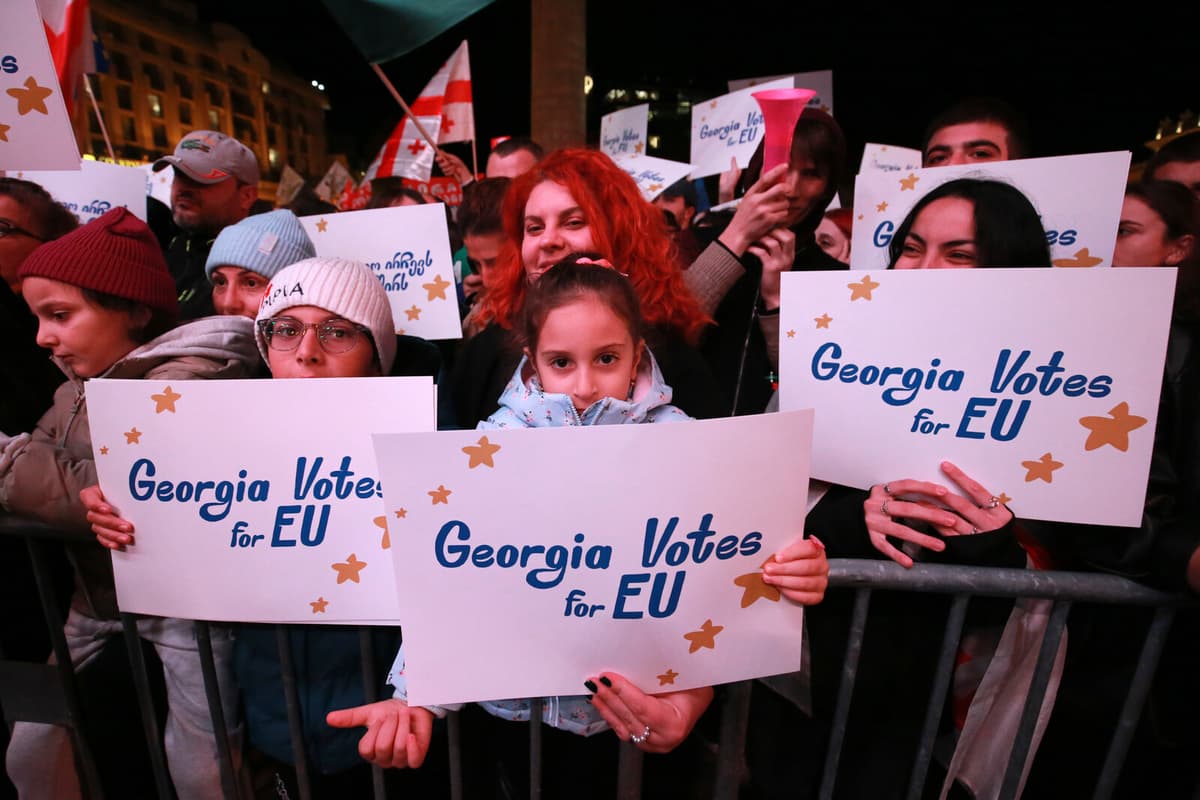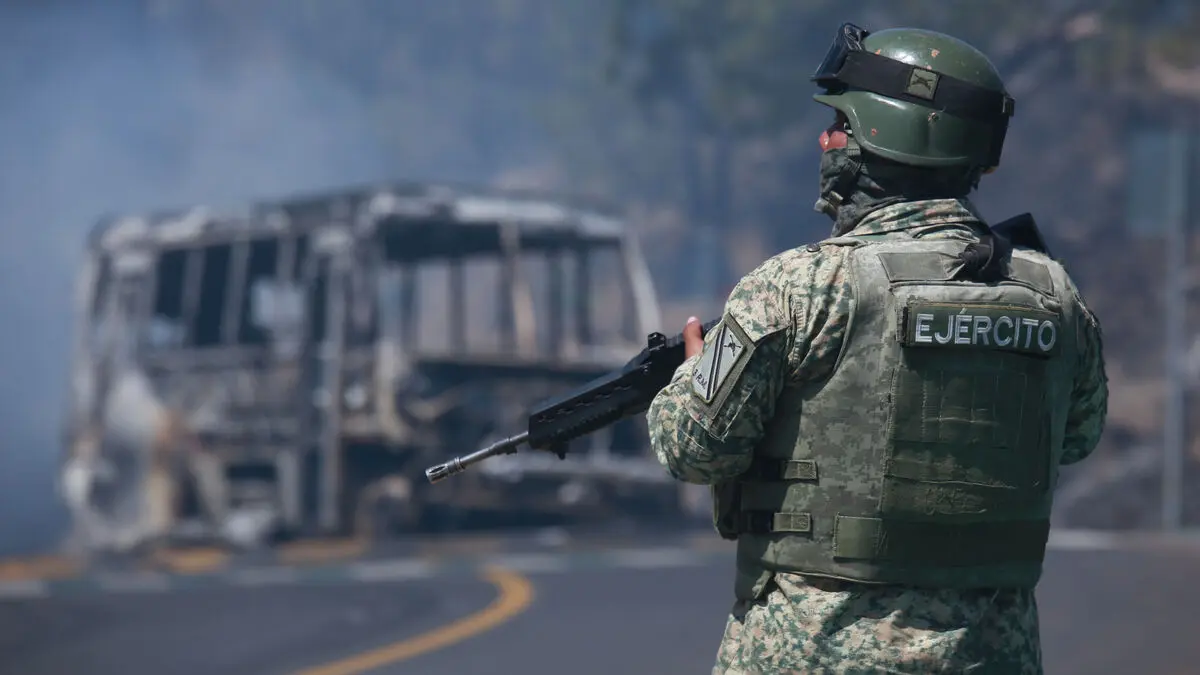Few elections can have such direct consequences as today's Georgian. In practice, the Caucasus country's path for years to come is now being decided.
The Georgian people have a clear choice: a free, flourishing European future, or an authoritarian government in Putin's style that plans to eradicate opposition, lock up everyone they can, and force others out of the country, completely cementing power and pushing away the West, said opposition leader Tina Bokutjava to Politico in August.
Georgia received candidate status for EU membership at the end of 2023. Since then, the ruling party Georgian Dream, which has held power since 2012, has stalled the process with a series of controversial legislative changes.
"Global War Party"
Analysts have drawn parallel after parallel to Russia, not least with the disputed so-called agent law that came into force in June. Tbilisi is on its way to becoming a Russian proxy, it is warned.
The government has also passed a law that severely restricts the rights of LGBTQ+ individuals and has promised a constitutional ban on pro-Western political forces, including the main opposition party United National Movement (UNM).
This election must become the Nuremberg trials for UNM, said the founder of the ruling party Bidzina Ivanishvili recently.
The 68-year-old billionaire Ivanishvili resigned as prime minister in 2012, but is believed to have continued to control the country behind the scenes. Since then, Georgian Dream has taken over almost all independent institutions in the country, according to Transparency International.
Another Front Against Russia
According to Ivanishvili, his party wants to save the country from the opposition, which he claims is trying to open a second front against Russia, referring to the Ukraine war. Representatives of Georgian Dream often talk about a "global war party" that is trying to drag Georgia into the war, which is assumed to refer to the EU and NATO.
Earlier in October, the European Parliament called for sanctions against Ivanishvili, accusing him of undermining Georgia's democracy and steering the country towards Russia.
The opposition's challenge has so far been its fragmentation, but ahead of the election, a number of alliances have shaken hands to form a temporary coalition government to stop Georgian Dream.
According to measurements from the US-based Edison Research, they have the potential to gather enough support together to take power – if they manage to appear united enough.
Georgia's so-called agent legislation came into force on June 3, after months of popular protests. The law means that organizations that receive more than one-fifth of their funding from abroad must register with the authorities as organizations working on behalf of foreign powers.
The law has raised questions about press freedom, aid from, among others, Sweden, and the law itself, which appears to have been modeled on a template used in Russia to restrict civil society and regime criticism.
The government motivates the law by saying that greater transparency is needed in certain financial flows to the country.
Georgia became a candidate for EU membership at the end of 2023, but the agent law is deemed to go against several fundamental criteria for the country to become a full member.
A few opinion polls conducted in recent years have shown that a large majority of Georgia's population wants the country to join the EU.






